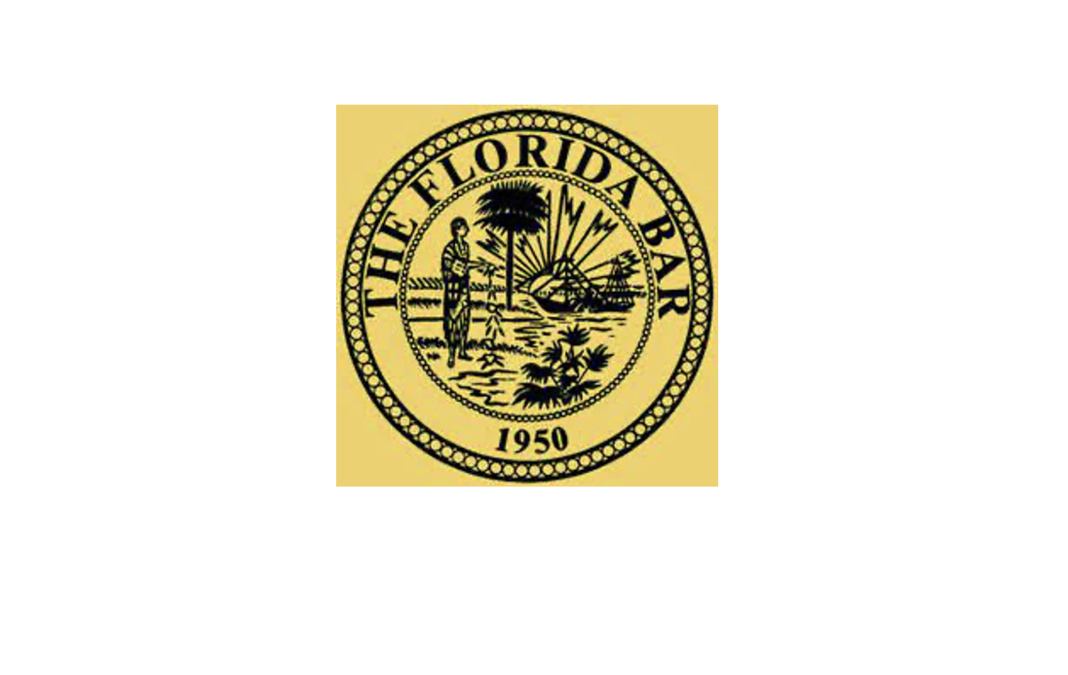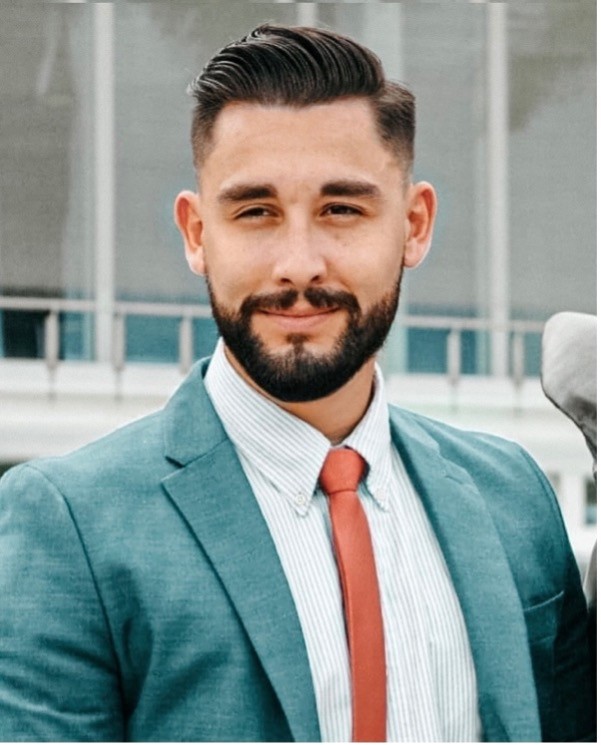
by Elise Nuevo | Nov 8, 2021 | Moot Court Mondays

Elise Nuevo
New business is a key factor to any attorney’s success—and finding unique ways to reach potential new clients is essential. When it comes to advertising, however, attorneys must follow the rules provided by the Florida Bar. Specifically, Rule 4-7.19.
New and transformative digital technologies are rapidly taking over and enabling organizations to innovate and thrive in a progressively digital world. COVID-19 put a full-stop on business as usual and created a launching pad for organizations to become virtual—all while doing it at lightning-fast speed. The Florida Bar is keeping up-to-date and advancing to fit in with this technology that is becoming more integrated with every aspect of our lives each day.
The Florida Supreme Court has just adopted amendments to rule 4-7.19 to allow the Florida Bar to post on the Bar website the location for submission of advertisements for review. Advertisements must be filed with The Florida Bar in the manner that is specified on the Florida Bar website. What does this mean? The adopted amendment will now potentially allow the Bar to implement procedures for online submission of advertisements.
An electronic submission system may be more efficient and effective in comparison to the traditional mailing processes that have been set in stone for years. Advertisements by lawyers are at an all-time high. These rapid developments are not only providing innovative solutions that attorneys need to improve their workflow but are also providing them with a much faster way to submit their advertisements that will, in return, help their businesses—with just the click of a finger.
Sources:
Florida Supreme Court Case: IN RE: AMENDMENTS TO RULE REGULATING the FLORIDA BAR 4-7.19
The Florida Bar News: BAR REVIEWING MORE LAWYER ADS

by Alexa Zamora | Nov 1, 2021 | Moot Court Mondays

Alexa Zamora
The Florida Bar’s Special Committee on Examination of Judicial Referral Process was assigned to create the most effective and efficient process to address judicial referrals of lawyer misconduct.
Rule 3-7.18 of the Rules Regulating the Florida Bar was amended to address judge’s long history of dissatisfaction of never being informed of the outcome of their complaint or inquiry to the Florida Bar regarding lawyer misconduct. When a judicial complaint is made, many times, the Florida Bar Committees’ decision does not require the filing of formal grievance charges. The Committees’ decision not to pursue an inquiry, dismiss a case, find no probable cause, issue a letter of advice, recommend a diversion, or recommend an admonishment for minor misconduct are all dispositions that do not require a filing of formal charges. Consequently, judges are not being informed of the Florida Bar Committees’ decision nor informed of the outcome of their complaint.
Rule 3-7.18 creates a process of review and approval by the Board of Governors of the Florida Bar and the Court regarding all dispositions of judicial referrals. First, the Bar’s Disciplinary Review Committee will review all inquiries or complaints that do not require filing formal charges and recommend a disposition to the full Board of Governors. Thereafter, the Board of Governors have one of two options, either they accept the committee’s recommended disposition or reject it. Suppose the board decides to reject the recommended disposition. In that case, the Board of Governors either can refer the matter to a grievance committee for additional investigation or review; find probable cause, and the case would proceed accordingly; or recommend a different disposition to the Supreme Court of Florida.
The Florida Supreme Court may review the board’s recommendation for approval of dispositions of judicial referrals and may take one of the following actions, either approve the board’s recommended disposition; reject the Board’s recommendation, refer the matter back to the Board for further review, or request that the bar provide additional information.
The new rule will become effective on December 20, 2021.
Sources:

by Claudia Martinez | Oct 25, 2021 | Moot Court Mondays

Claudia Martinez
The State of Florida is well-known for its Stand Your Ground law. The essence of the Florida law is recited throughout the country as the controversy on the topic continues to grow. The procedural limitations of Florida’s Stand Your Ground law, however, are not as popular. In a recent opinion, the Florida Supreme Court addressed what happens when the wrong burden of proof is used during an immunity hearing consisting of a Stand Your Ground defense.
In 2017 the Florida Legislature amended Florida Statute Section 776.032, which took effect on June 9, 2017, to include the necessary burden of proof of clear and convincing evidence. This was in direct response to a previous holding from the Florida Supreme Court in 2015, asserting that “[a] defendant bears the burden of proof, by a preponderance of the evidence, to demonstrate entitlement to Stand Your Ground immunity at [a] pretrial evidentiary hearing.” Bretherick v. State, 170 So. 3d 766, 775 (Fla. 2015).
A retroactive application of this new burden of proof had not been adjudicated until recently. In Boston v. State, 296 So. 3d 580 (Fla. 1st DCA 2020), a defendant was charged with aggravated battery with a deadly weapon from an altercation taking place in 2016, which was before the legislative amendment went into effect. The defendant claimed immunity under the Stand Your Ground law. The trial court ultimately decided that the pre-amendment standard of a preponderance of the evidence should be applied, since the altercation had taken place in 2016. The defendant was subsequently found guilty of a lesser-included offense, after both his immunity hearing and his self-defense claim failed.
On appeal, the issue before the Court was whether this retroactive application of the pre-amendment standard of proof had affected the outcome of the defendant’s case. In reaching its conclusion, the Florida Supreme Court placed special emphasis on the hierarchy of the standards of proof. Proof beyond a reasonable doubt is the highest and most burdensome standard to meet. Once the State has met this burden, it seems reasonable to conclude that a lower standard – such as a preponderance of the evidence or clear and convincing evidence – has been satisfied. A retroactive application of the preponderance of the evidence standard is therefore a harmless error bearing no significant change in the outcome of the case.
CITES

by Ray Rascon | Oct 18, 2021 | Moot Court Mondays

Ray Rascon
Recently on October 4, 2021, the Florida Supreme Court heard oral arguments on appeal in the case of Mark Sievers. Sievers was convicted in December 2019 of the brutal first-degree murder of his wife. A Lee County jury recommended the death sentence for Sievers, and Judge Bruce E. Kyle sentenced him to death in January 2020. Attorneys for Sievers filed the appeal with the Florida Supreme Court in February 2020.
Among the eighteen issues argued on appeal, was the issue of the prosecution’s timeliness in filing a notice to seek the death penalty. Justice Couriel and Justice Muñiz spent a significant amount of time questioning each counsel about the central issue of timeliness. Kary Kinney represented Sievers and on behalf of the State of Florida was assistant attorney general Christina Pacheco.
If a prosecutor in a capital offense case intends on seeking the death penalty, Section 782.04(1)(b) of the Florida Statutes, and its counterpart in Rule 3.181 of the Florida Rules of Criminal Procedure, generally set forth a notice requirement. Specifically, Rule 3.181 states:
The prosecutor must give notice to the defendant of the state’s intent to seek the death penalty. The notice must be filed with the court within 45 days of arraignment. The notice must contain a list of the aggravating factors the state intends to prove and has reason to believe it can prove beyond a reasonable doubt. The court may allow the prosecutor to amend the notice upon a showing of good cause.
Fla. R. Crim. P. 3.181.
On the one hand, Rule 3.181 addresses the temporal period of when to file and when it is permissible to amend. On the other hand, Rule 3.050 addresses extensions of the temporal period, and states as follows:
The court for good cause shown may, at any time, in its discretion (1) with or without notice, order the period enlarged if a request, therefore, is made before the expiration of the period originally prescribed or extended by a previous order or (2) upon motion made and notice after the expiration of the specified period, permit the act to be done when the failure to act was the result of excusable neglect.
Fla. R. Crim. P. 3.050 (emphasis added).
In the Sievers case at hand, the trial court noted the date of arraignment to be May 9, 2016, although the defense argued the May 5th filing of the “waiver of arraignment” should have acted as the de facto arraignment date (the trial judge determined the pleading was not designed to trigger a waiver of arraignment). This effectively placed the prosecution’s June 22nd filing of a notice on the 44th day of the period and the prosecution’s subsequent amendment to include aggravating factors beyond the prescribed time period. The prosecution’s reason for the amendment was simply inadvertence.
The Florida Supreme Court will now have to decide whether a statement of inadvertency is sufficient for a showing of good cause under the present circumstances. The Court’s decision will certainly carry great precedential weight if the Court finds a harmless error in the five-day non-prejudicial delay in light of over three years leading up to the trial of the case. As Justice Couriel positioned the issue, “it sounds like you’re saying it was just tardily filed, oops, and the court then found good cause shown. I’m a little concerned about that as a basis for finding good cause shown.” Justice Muñiz echoed the concern, “so we would have to say that essentially ignorance of the new law is good cause.”
The central issue in the case highlights the importance of procedural compliance and begs the question: why do we set forth rules in the first place? The difference between life and death can come down to the form of a pleading, notice, or the timeliness of a request for extension, as may occur in this case. The stakes in this case juxtaposed to mere inadvertence are awfully high.
Sources:
- In re Amendments to Florida Rules of Criminal Procedure Rule 3.181
- In re Amendments to Florida Rules of Criminal Procedure Rule 3.050
- https://www.news-press.com/story/news/2021/10/05/mark-sievers-curtis-florida-supreme-court-asked-overturn-death-ruling/6003471001/

by Christopher Cabrera | Oct 11, 2021 | Moot Court Mondays

Christopher Cabrera
The “apex doctrine” protects high level officers from the risk of abusive discovery. Prior to the opinion issued by the Florida Supreme Court in the case of In re: Amendment to Florida Rule of Civil Procedure 1.280, Florida Courts applied the “apex doctrine” to protect only high level government officials. This application of the “apex doctrine” meant that high level corporate officers were at risk of being forced into discovery proceedings although they had no personal knowledge in the case or controversy.
After the decision handed down on August 26, 2021, the version of the “apex doctrine” that protects both high level government and corporate officials was codified in Florida Rule of Civil Procedure 1.280. Although federal courts have always broadly applied the “apex doctrine” to both high level government and corporate officers, Florida has become only the fifth state to formally adopt this version of the “apex doctrine.”
In Florida, the issue of whether the “apex doctrine” applied in the corporate context arose in the case of Suzuki Motor Corp. v. Winckler, 284 So. 3d 1107 (Fla. 1st DCA 2019). In that case Mr. Winckler sued Suzuki Motor Corp alleging that he was injured in a motorcycle accident caused by a failure of the motorcycle’s brake system. During discovery, Winckler sought to depose Osamu Suzuki, the chairman of the company and former CEO. In response, Suzuki Motor Corp essentially argued that the apex doctrine protected Mr. Suzuki from having to participate in the deposition because he had no personal knowledge in the issue and there were better suited individuals within the company to answer to deposition questions. The trial court concluded that the “apex doctrine” did not apply to private corporations and the First District Court of Appeal affirmed the trial court decision explaining that, “No Florida court has adopted the apex doctrine in the corporate context.”
The Florida Supreme Court responded to the Suzuki case by extending the “apex doctrine” protection to high level corporate officers. The amendment of Florida Rule of Civil Procedure 1.280(h), now states that “[a] current or former high-level government or corporate officer may seek an order preventing the officer from being subject to a deposition.” The Court reasoned that the “efficiency and anti-harassment principles animating [the apex doctrine] are equally compelling in [both government] and private sphere[s].” In addition, “apex officials ‘are vulnerable to numerous, repetitive, harassing, and abusive depositions, and therefore need some measure of protection from the courts.’”
Procedurally, a party may request an opposing party officer subject themselves to a deposition. The opposing party then has the burden of establishing that the officer is a “high level” officer and must submit an affidavit stating why they “lack unique, personal knowledge of the issues being litigated.” This issue will be determined according to the unique facts of each case. After the affidavit is produced, the burden shifts to the party seeking the deposition to show that other discovery has been exhausted, and that the officer has unique, personal knowledge of discoverable information.
This decision ensures that both government and corporate “high level” officers are protected from the potential for abusive and harassing deposition requests.
Sources:
- Florida Supreme Court Case: In re: Amendment to Florida Rule of Civil Procedure 1.280
- Website blog article: Florida Supreme Court Adopts Apex Doctrine Protecting High Level Corporate and Government Officers

by Cassidy Heitman | Oct 4, 2021 | Moot Court Mondays

Cassidy Heitman
From zoom calls to masks and everything in between, the world has changed since the COVID-19 pandemic. However, public policy favoring the enforcement of reasonable covenants not to compete remains unchanged.
On September 1, 2021, the Third District Court of Appeal held in favor of GFA International, Inc. (“Appellant”). Eric Trillas and Trillas Consulting Engineers (“Appellee”) was employed by Appellant for approximately five years and entered into a non-solicitation and non-competition agreement. While employed by Appellant, Appellee formed Trillas Consulting Engineers (TCE) and diverted work from Appellant. GFA Int’l, Inc. v. Trillas, 46 Fla. L. Weekly D1946 (Fla. 3d DCA September 1, 2021). In 2020 Appellee left Appellant’s employment and continued to operate TCE while working with Appellant’s clients.
The Third District Court reversed and remanded the trial court’s decision, denying the motion for a temporary injunction enjoining Eric Trillas and Trillas Consulting Engineers (“Appellee”) from violating a non-compete agreement. The trial court found that there was insufficient evidence of irreparable injury based on possible recovery of monetary damages showing an adequate remedy at law. Additionally, the trial court found that the relief sought by the Appellant did not serve the public interest because it prevented an individual from practicing their profession during the pandemic.
Before the COVID-19 pandemic, Florida public policy favored the enforcement of reasonable covenants not to compete and was governed by § 542.355 of the Florida Statutes. The Third District Court of Appeal found that § 542.335(1)(g) of the Florida Statutes conflicted with the trial court’s decision.
Section 542.335(1)(g) states, “In determining the enforceability of a restrictive covenant, a court … [s]hall not consider any individualized economic or other hardship that might be caused to the person against whom enforcement is sought.”
The Third District Court of Appeal found that denying the injunction based on individualized hardship violated public policy. The policy reasoning is that the enforcement of restrictive covenants serves the public interest because “it demonstrates that courts will uphold agreements, and employers can rely on non-compete agreements to protect their legitimate business interests.” Quirch Foods LLC v. Broce, 314 So. 3d 327 (Fla. 3d DCA 2020).
Arguably, the Third District Courts’ reasoning protects companies who provide confidential information to their employees because it allows employers to know that the information is protected if an employee resigns or is terminated.
In light of this decision, in a world that seems to be constantly changing, one thing remains, which is the enforceability of reasonable non-compete agreements.
Links/Cites:












